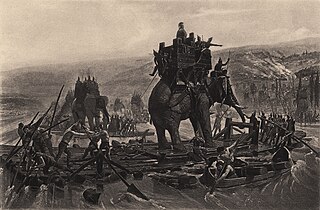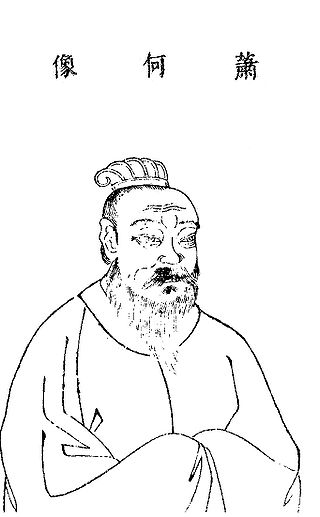Related Research Articles

The 2nd century BC started the first day of 200 BC and ended the last day of 101 BC. It is considered part of the Classical era, although depending on the region being studied, other terms may be more suitable. It is also considered to be the end of the Axial Age. In the context of the Eastern Mediterranean, it is the mid-point of the Hellenistic period.

The 3rd century BC started the first day of 300 BC and ended the last day of 201 BC. It is considered part of the Classical Era, epoch, or historical period.
This article concerns the period 229 BC – 220 BC.
Year 202 BC was a year of the pre-Julian Roman calendar. At the time it was known as the Year of the Consulship of Geminus and Nero. The denomination 202 BC for this year has been used since the early medieval period, when the Anno Domini calendar era became the prevalent method in Europe for naming years.

This article concerns the 200 BC decade, that lasted from 209 BC to 200 BC.
This article concerns the period 159 BC – 150 BC.
This article concerns the period 239 BC – 230 BC.
This article concerns the period 219 BC – 210 BC.
This article concerns the period 179 BC – 170 BC.
This article concerns the period 189 BC – 180 BC.
This article concerns the period 199 BC – 190 BC.
Year 204 BC was a year of the pre-Julian Roman calendar. At the time it was known as the Year of the Consulship of Cethegus and Tuditanus. The denomination 204 BC for this year has been used since the early medieval period, when the Anno Domini calendar era became the prevalent method in Europe for naming years.
Year 205 BC was a year of the pre-Julian Roman calendar. At the time it was known as the Year of the Consulship of Scipio and Dives. The denomination 205 BC for this year has been used since the early medieval period, when the Anno Domini calendar era became the prevalent method in Europe for naming years.
Year 195 BC was a year of the pre-Julian Roman calendar. At the time it was known as the Year of the Consulship of Flaccus and Cato. The denomination 195 BC for this year has been used since the early medieval period, when the Anno Domini calendar era became the prevalent method in Europe for naming years.
Year 198 BC was a year of the pre-Julian Roman calendar. At the time it was known as the Year of the Consulship of Catus and Flamininus. The denomination 198 BC for this year has been used since the early medieval period, when the Anno Domini calendar era became the prevalent method in Europe for naming years.
Year 197 BC was a year of the pre-Julian Roman calendar. At the time it was known as the Year of the Consulship of Cethegus and Rufus. The denomination 197 BC for this year has been used since the early medieval period, when the Anno Domini calendar era became the prevalent method in Europe for naming years.
Year 193 BC was a year of the pre-Julian Roman calendar. At the time it was known as the Year of the Consulship of Merula and Thermus. The denomination 193 BC for this year has been used since the early medieval period, when the Anno Domini calendar era became the prevalent method in Europe for naming a year.

Xiao He was a Chinese calligrapher and politician of the early Western Han dynasty. He served Liu Bang, the founder of the Han dynasty, during the insurrection against the Qin dynasty, and fought on Liu's side in the Chu–Han Contention against Liu's rival, Xiang Yu. After the founding of the Han dynasty, Xiao He became the chancellor and held office until his death. For his contributions, he is also known as one of the "Three Heroes of the early Han dynasty" (漢初三傑), along with Han Xin and Zhang Liang.

After Liu Bang defeated Xiang Yu and proclaimed himself emperor of the Han dynasty, he followed the practice of Xiang Yu and enfeoffed many generals, noblemen, and imperial relatives as kings, the same title borne by the sovereigns of the Shang and Zhou dynasties and by the rulers of the Warring States. Each king had his own semi-autonomous kingdom. This was a departure from the policy of the Qin dynasty, which divided China into commanderies governed by non-hereditary governors.
References
- ↑ Stambaugh, John E. (1988). The Ancient Roman City. Baltimore: Johns Hopkins University Press. p. 29. ISBN 0-8018-3574-7.
- ↑ Hung, Hing Ming (2011). The Road to the Throne: How Liu Bang Founded China's Han Dynasty. pp. 186–219. ISBN 978-0875868387.